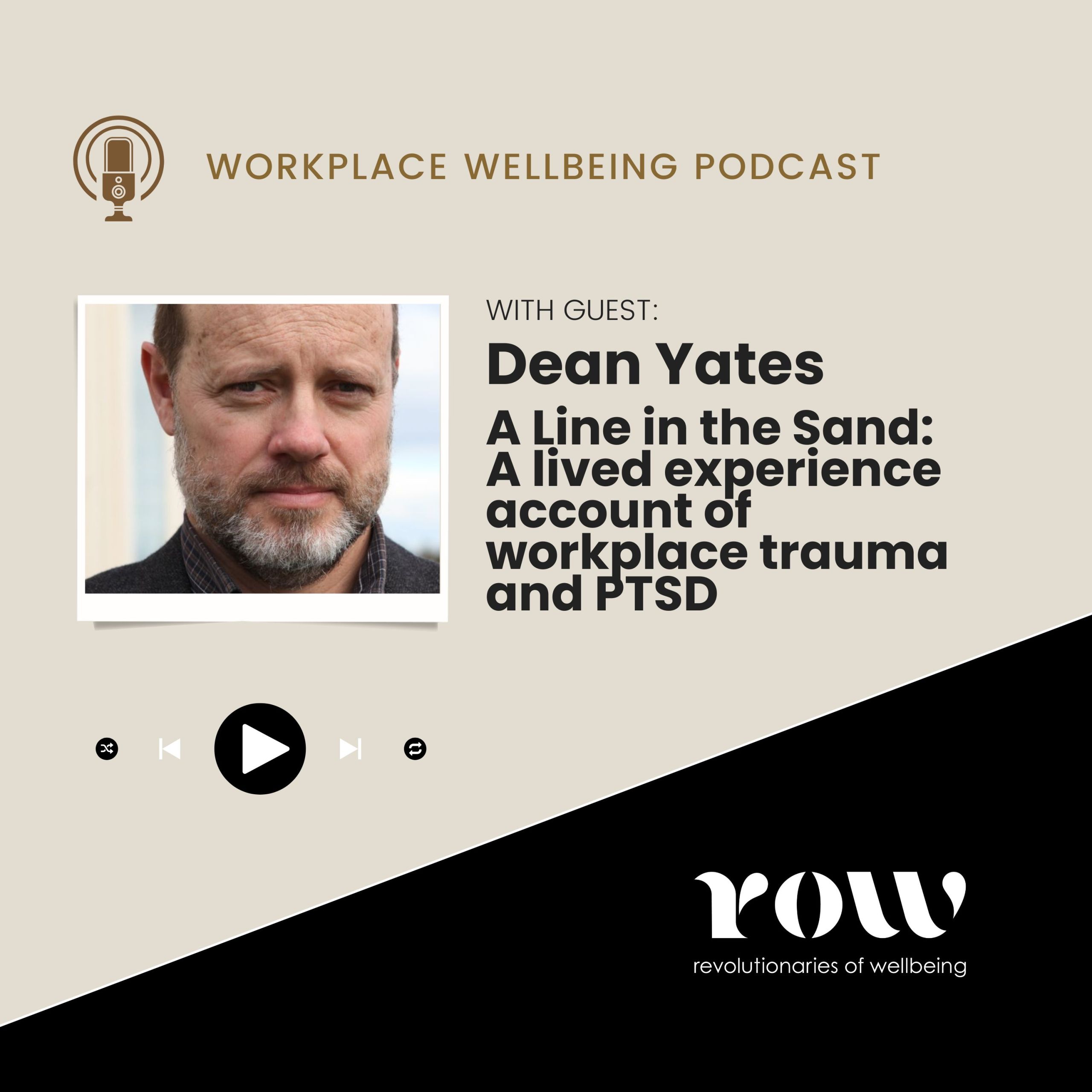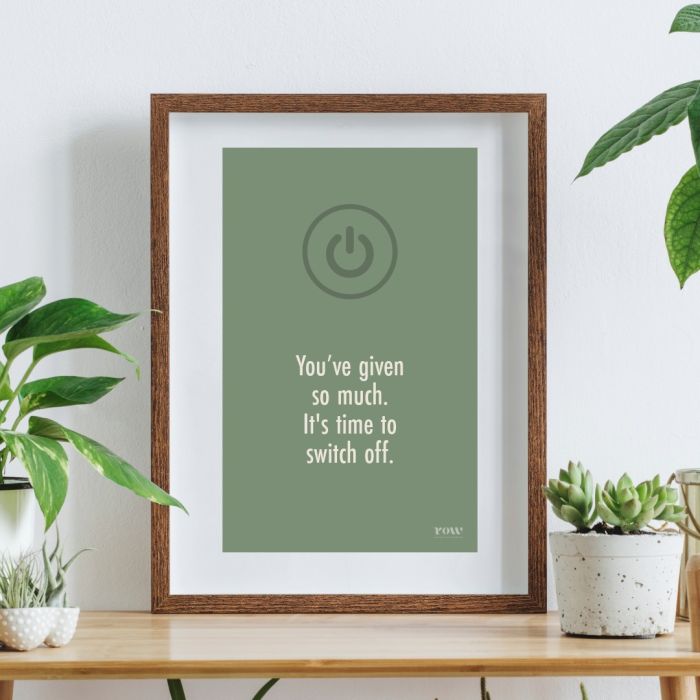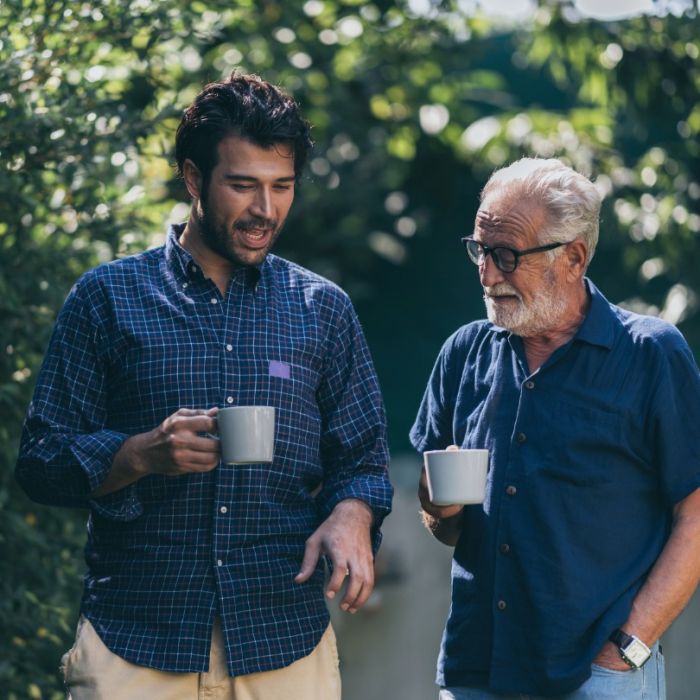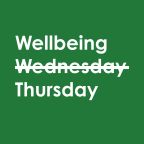In this episode, ROW Alumni Chris Hewitt chats with Dean Yates, author of Line in the Sand.
Dean Yates was the ideal warzone correspondent: courageous, compassionate, dedicated. After years of facing the worst, including covering the Bali bombings and the Boxing Day tsunami, one final incident undid him.
In this gritty and compelling interview, Dean shares his lived experience of trauma, PTSD, moral injury and his three admissions to the Ward 17 psych unit in Melbourne, Australia. There are lessons we can all learn from Dean’s story, and obvious actions for workplaces to ensure they protect their people.
“If we’re going to make a difference in the workplace, there has to be a revolution. Because at the moment it’s just not happening, it’s not working.”
Listen on your favourite platform
Discover the ROW Workplace Wellbeing Podcast on popular platforms such as Spotify, Apple, Google, Amazon Music/Audible and iHeartRadio.
We value your feedback! Please consider leaving a review on your preferred podcast platform, such as Apple Podcasts or Spotify. Let us know what you enjoyed most about this episode.
Where to get help
If you find the content of this story upsetting or need support, it’s completely normal and a positive step to seek help. Taking this step can be daunting, but it’s important. Please visit the website HelpGuide for helplines in your country, or contact your workplace’s Employee Assistance Program (EAP).
Episode insights
Episode Summary
Key points
This episode covers:
• Dean Yates shares his experience as a war correspondent and the trauma he faced
• PTSD and moral injury are explained, including their impact on individuals and families
• The importance of organisational support for employees’ mental health is emphasised
• Challenges in first responder organisations regarding mental health are discussed
• The multifaceted approach to treatment at Ward 17 psych unit is described
Detailed summary
1. Dean Yates’ background and experience (00:02 – 07:25)
Dean shares his 26-year career as a journalist with Reuters, covering major events like the Bali bombings and Boxing Day tsunami. He discusses the lack of psychological preparation for trauma in his profession and his subsequent diagnosis of PTSD in 2016. Dean emphasises the need for a “revolution” in workplace wellbeing and the importance of “ferocious advocacy” for mental health.
2. PTSD and moral injury (07:50 – 10:46)
Dean explains the differences between PTSD and moral injury:
• PTSD: Often associated with life-threatening situations, danger, and violence
• Moral injury: The “moral dimension of trauma” occurring when someone’s notion of right is deeply violated
He notes that moral injury can result from personal actions or organisational betrayal, and while not classified as a mental illness, it resonates strongly with readers of his book.
3. Trauma in journalism and other professions (11:21 – 15:30)
The discussion covers:
• The role of journalists as witnesses to events
• The impact of vicarious trauma, especially for young journalists exposed to distressing content
• The prevalence of workplace trauma beyond first responders, including retail workers, teachers, and lawyers
• The need for better understanding and management of trauma risks in various workplaces
4. Dean’s PTSD experience and treatment (17:08 – 24:18)
Dean describes his PTSD symptoms, including hypersensitivity to noise, emotional numbness, intrusive images, and depression. He criticises Reuters’ lack of support during his initial diagnosis and leave period, highlighting the importance of maintaining contact with employees on mental health leave and having proper return-to-work plans.
5. Psych ward admissions and recovery (28:51 – 34:25)
Dean discusses his experiences in Ward 17, emphasising:
• The benefits of a multidisciplinary care approach
• The non-linear nature of recovery
• The importance of destigmatising psych ward admissions
• The potential need for multiple admissions as part of the healing journey
6. Impact on family and loved ones (35:05 – 37:60)
Dean and Chris discuss the ripple effects of PTSD on family members:
• Different manifestations of PTSD in men and women
• The importance of acknowledging and supporting partners and children
• The need for family members to seek help themselves
7. Moral injury in workplace safety roles (38:16 – 41:39)
Chris raises the issue of moral injury for health and safety professionals who feel their workplaces are not doing enough to protect employees. Dean advises:
• Acting in line with one’s moral compass and values
• Doing everything possible to make the workplace safe
• Recognising that not acting can lead to future regret and psychological consequences
Additional notes:
• Recovery from trauma is not linear and may require multiple psych ward admissions
• Moral injury can result from organisational betrayal or witnessing traumatic events
• Secondary trauma affects family members of those with PTSD
• Journalists face unique challenges with vicarious trauma and ethical dilemmas
• Workplace trauma is not limited to first responders and can affect various professions
APPLYING THIS TO THE WORKPLACE
If you’re thinking about how to apply this to your workplace, here are some things to consider.
The business case:
• Increase awareness of workplace trauma beyond first responders and veterans
• Implement trauma-informed practices and support systems in organisations
• Break down stigma around mental health
• Develop better return-to-work plans for employees with mental health issues
Potential challenges to address:
• Overcoming stigma around mental health issues in the workplace
• Implementing effective trauma support systems in high-risk professions
• Balancing profit-driven goals with employee wellbeing
• Addressing the impact of workplace trauma on families and loved ones
• Resistance to implementing mental health strategies in large organisations
• Persistent culture of toughness in some professions
• Predatory workers’ compensation systems that hinder recovery and return to work
• Lack of understanding and support for moral injury in workplace contexts
• Potential for organisational betrayal leading to severe psychological consequences
Top tips for listeners:
• Organisations need to prioritise mental health and implement support systems
• Regular contact should be maintained with employees on mental health leave
• Workplaces should provide trauma-informed training and preparation for high-risk roles
• Stigma around mental health and psych ward admissions needs to be addressed
• HR and health and safety professionals should advocate for mental health initiatives
TRANSCRIPT
00:02
Sarah: Welcome to the Revolutionaries of Wellbeing podcast. I’m host Sarah McGuinness. The Revolutionaries of Wellbeing, or ROW, helps leaders to be change makers and to create better workplaces with a community of champions from organisations around the globe. ROW is dedicated to helping you to develop your professional expertise, access practical tools and resources, and network with peers and experts to meaningfully improve wellbeing. These interviews are recorded as part of our monthly Wellbeing Wednesday webinars and are designed to inspire, share ideas and raise awareness of important issues we can all take action on.
, 00:41
Dean: What happens sometimes is that in organisations, often large organisations, that moral compass gets crushed under the pressure of profits or deadlines or whatever other sort of directives that occur. And those people with that good moral compass will suffer later for it when things do happen.
, 01:08
Sarah: In this episode, ROW alumni Chris Hewitt chats with Dean Yates, author of Line in the Sand. Dean Yates was the ideal war correspondent, courageous, compassionate and dedicated. After years of facing the worst, including covering the Bali bombings and the bombing Boxing Day tsunami, one final incident was his undoing.
In this gritty and compelling interview, Dean shares his lived experience of trauma, PTSD, moral injury and his three admissions to the ward 17 psych unit in Melbourne, Australia. There are lessons we can all learn from Dean’s story and obvious actions for workplaces to ensure they protect their people.
, 01:50
Dean: Thank you for having me along and I love, love what you guys call yourselves. Revolutionaries of Wellbeing, right, that works for me. Because if we’re going to make a difference in the workplace, there has to be a revolution. Because at the moment it’s just not happening, it’s not working. So I love it, really do. I’ve got a tattoo on the inside of my bicep here that says ferocious advocacy. That’s how I approach mental health. That’s what we got to do to really get change happening in the workplace, in organisations. So just to add a little bit of background and context there.
I was a journalist for 26 years with the Reuters news service, one of the biggest news organisations in the world, and I just happened to be working as a journalist where there was a lot of big news happening. And that took me across Asia, the Middle east and back when I was doing a lot of this stuff, we just weren’t prepared for the sort of trauma that I encountered. Bali bombings, Boxing Day, tsunami, big earthquakes, spent a couple of years, spent a long time working in Iraq.
Three of my staff were killed and the pressure was enormous and I was running large newsrooms, large teams. We just weren’t psychologically prepared for that sort of. For that sort of work, we would undergo a lot of physical, sort of safety training, which a lot of organisations do, but I never had any mental health training whatsoever. And the result of all that was that I was diagnosed with post traumatic stress disorder in 2016 and had my first psych ward admission about six, seven months later.
Ended up having three psych ward admissions because of the accumulative trauma that I had suffered, that I had gone through. And what I discovered in the psych ward, that there are a lot of people in there just like me, veterans, police, ambulance, firefighters, people from other walks of life who had gone through some severe occupational trauma as well.
And what I also discovered was that virtually everyone in that psych ward had been abandoned by their workplace. They had essentially been treated as damaged goods and left to rot, thrown into a system, a workers comp system in Australia that is predatory and that essentially preys on injured workers, that makes little attempt to actually get injured workers back to work, but that seeks to prolong their, their suffering by drawing out their claims and denying their claims.
And this was a real eye opener for me. That was actually one of the reasons why I wanted to write my book, was because I wanted to. By sharing my story, I wanted to be able to share the stories of these men and women in this psych ward who had served their country and served their community, and were now paying a very steep price for that.
One of the remarkable things that happened after I was diagnosed with PTSD was that I was able to convince Reuters to create a role for me, even though they actually tried to get rid of me at one point, I was able to convince them to create a role for me as head of mental health and wellbeing strategy, a global role, where I was responsible for creating a whole strategy for how to look after the mental health of two and a half thousand journalists around the world.
This had never been done in any media organisation before, and so it was quite unique and I had a large remit. But very quickly the resistance emerged to that role. And despite throwing everything I had at this over three years, and there were some successes, and I’m sure Chris and I can talk about that during our discussion, there were some successes.
I eventually left after three years because the stress of that role was actually taking such a toll on me that I had to leave. And I think there’s some lessons for organisations in what worked at Reuters in this role and what didn’t. The book itself has just been an incredible opportunity for me to reflect back on the workplace trauma that I suffered, but also to look at the organisational lessons, I think that can be learned, and that how organisations have a massive role in looking at, can play such an important role in people’s lives, in their employees lives and the lives of their families, and that this is not rocket science.
And it doesn’t actually take a lot of effort, it just takes a little bit of willingness and a bit of leadership, and that at the end of the day, the impact that organisations can, the positive impact that organisations can have on people’s lives is immense. On the other side of the coin, the detrimental effect that organisations can have on people when they don’t look after them and their families is absolutely ruinous.
And I have seen it time and time again. And so that’s one of the reasons why I’m so outspoken about these issues here in Australia and elsewhere, because I have seen lives lost because of the way organisations treat their people. And that’s part of the message in this book, is to try to just make organisational leaders more aware of the need to make mental health a top priority in the workplace.
, 07:25
Chris: Yeah, because. And thank you for that. You talked about PTSD, PTSD being an accumulation of traumatic events that happen to you over time. Now, you also talk about moral injury, which is a related concept. So can you, I guess, explain both of those for those who may be a little bit unfamiliar with those terms, and I guess, what the differences between those two are?
, 07:50
Dean: Yeah, sure. So, PTSD, I’m sure everyone here on this call will have heard of PTSD, post traumatic stress disorder. It’s something that people will often relate to, soldiers who’ve returned from war. It’s commonly associated now with first responders. It is something that. It’s a condition that is the results from, usually a situation where there’s been a life threat, danger and violence, and that’s why it has that association with war and first responders.
But women suffer PTSD rates twice that of men because of sexual assault and rape and domestic violence. It’s just not as spoken about as much. Moral injury. On the other hand, it has some similar characteristics, similar symptoms to PTSD. But it is, I call it the moral dimension of trauma. And it is a condition that occurs where someone’s notion of what’s right has been deeply violated, so strongly violated, that it results in.
In psychological consequences. So, for example, there are two types of moral injury. One is where someone has done something, failed to do something, or witnessed something so horrific that it transgresses everything they hold. Good or everything they believe is good in themselves and the world.
The second example of the second scenario of moral injury is the betrayal, where someone has been betrayed by an organisation, a government or a system, you know, the justice system, for example. And that betrayal has occurred in a, shall we say, a high stakes situation that affects their life. And so I suffered a moral injury when Reuters tried to force me out of the organisation after more than two decades of putting my life on the line for them, that was the thanks I got.
Rather than look after me, they tried to throw me out. And the moral injury, the psychological consequences I suffered as a result of them doing that to me, it was actually harder for me to deal with that than all the trauma I witnessed overseas as a journalist. And moral injury, however, is not classified as a mental illness. Obviously, PTSD is. And so this is where it gets a bit complicated and it’s where moral injury still really hasn’t been. It’s not very well understood, not very well known.
But what I have discovered since my book came out in late June, that it’s the concept of moral injury that has resonated with readers more than anything else in the book I’m hearing. I’ve heard from readers all across the world who say that this has struck a chord with them, especially the concept of organisational betrayal.
, 10:46
Chris: And with your role as a bureau chief or as a journalist, is it almost a little bit like bystander syndrome, where you witness these events didn’t necessarily happen to you directly, the Bali bombings or the Boxing Day tsunami, as an example, but you’re there, and I guess in your role as a journalist, that you’re there to report rather than to provide direct aid or assistance. Is that where that was coming from in your. Yeah, sorry.
, 11:21
Dean: Experience, this can be a problem for journalists. Right. So our role as a journalist is to bear witness. Our role as a journalist is to report the news, to write the stories. We’re not there as first responders. Our job is not to do anything, but it can sometimes become…
Journalists can sometimes get emotionally conflicted as to their role and sometimes feel like they’ve got to do something. And this actually, when journalists are conflicted about what it is, their role is that actually can open the door for trauma later on in life. And research has shown this.
But if you are confused about your role, that it can open the door for trauma later on, whereas a journalist who knows that their job is to bear witness, to write those stories, to produce that stories, that’s your job, you do it. I mean, obviously, if you’re in a situation where you see someone drowning, they’re just.
Refugees have come in off a boat, you see someone drowning, you pull them out. You’re going to save someone’s life. You’re not just going to take a photograph, you save someone’s life, or you give water to people who are. Who haven’t had a drink in a few days. I mean, you do those sort of humanitarian things, you’re still a human being. But I think the witnessing of horror for journalists, by and large, I think, has been, is one of the most difficult things for journalists to cope with. It’s not generally the threat that journalists encounter to their lives, it’s the cumulative witness, witnessing of horror.
It’s the going to these disaster zones, it’s the dead bodies, it’s the suffering, it’s the human misery. And now the big issue for a lot of journalists, especially young journalists, is having to wade through day after day of distressing material that comes through their computers, their computer screens from all around the world, the sort of footage that is being sent through. So the Moroccan earthquake is the latest example of this, right?
There would be people there who are uploading stuff to social media from their phones in an instant. And that stuff is raw, unfiltered footage and it’s getting beamed around the world. And you’ll have young journalists in New Zealand, in Australia, elsewhere, who are putting together these reports and it’s their job to verify it, edit it and sort of sanitise it so that it’s fit for the distribution.
They don’t have a lot of life’s experience, they don’t have a lot of understanding of trauma, and yet that’s what they’re doing a lot of the time, day after day. And so what we’re talking about here is vicarious trauma. So it’s the secondary trauma, it’s that, it’s, it’s. It’s where you’re not directly in front of the event, but you’re seeing it on a screen.
And this is something that is quite often an issue in a lot of organisations, a lot of workplaces. This precarious trauma, you might find it in people, in lawyers suffer from it, for example, dealing with distressing court cases, trials in the medical field, the psych field, that sort of stuff, anywhere where there is some sort of suffering going on and people are exposed to that, it can occur.
, 14:23
Chris: Yeah, that was actually something that really struck me, reading the book. And I wrote a little piece about this a week ago for ROW was the book opened my eyes to the idea that workplace trauma isn’t the sole reserve of first responders or veterans. You know, we’ve got people working in, you know, parts of New Zealand that were really badly flood hit and they saw their, you know, their workplaces, their home lives just turned upside down.
You see people, you know, retail crime is on the rise here and you’ve got people who are more at risk of that kind of trauma. You’ve got, again, people working in emergency medicine, teachers, lawyers, as you said. And I think from a. I guess from a workplace health and safety or a workplace well being point of view, we’re very good at managing a lot of risks, but I think our understanding of trauma is something that needs to be on the radar.
Hasn’t caught up with a lot of the other areas of wellbeing that we generally do better at.
, 15:30
Dean: Yeah, and I think, Chris, and the reason for that is that workplaces have traditionally been obviously very focused on the physical risks in a workplace because they’ll have people who are responsible for that work health and safety offices. And there are laws in place that mandate a safe workplace and there are severe penalties in place for workplaces that don’t do that.
And I think traditionally it is just in the DNA of organisations to say, hang on, what’s that barrel of chemicals doing over there without the lid on? It’s just. It is just. It’s just a subconscious thing that someone will take care of that. What workplaces need to be doing is asking themselves questions, asking themselves.
The question is the workplace that we operate, what is the potential for trauma? So think about transportation, for example. Think about organisations that run trucking companies, logistics, that sort of stuff. You’ve got a lot of trucks on the road. What are your drivers seeing on the road? How often are they involved in accidents, for example?
This is an area where there is a lot of trauma and I think it’s actually not being addressed, so it’s a responsibility. And this might not be the response. The work health and safety folks in an organisation might say, mental health. That’s not my job. Someone’s got to make it their job.
, 16:54
Chris: Yeah, 100%. I want to go back to your experience. So how did PTSD, I guess, manifest itself in you? And did that change over time?
, 17:08
Dean: Yeah. So I developed the classic PTSD symptoms, which really started with hyper sensitivity to noise, unexpected noise jumping out of my skin if someone slammed a door, dropped a plate or whatever. Emotional numbness to my loved ones, intrusive images just coming into my head from the things that I’d seen as a journalist overseas. Nightmares and depression.
And these are the sort of classic PTSD symptoms that people will often get. And the thing is, these symptoms began many years ago, slowly, but I just sort of pushed it aside and denied that I had a problem. My wife Mary knew that I was suffering and tried to get me help for some time, but I just sort of pushed her away and said, I’m fine, because I was still managing to work, I was still managing to do a good job.
And that meant that, I think for a lot of people, especially men, they think that if they’re managing to do their work, that everything’s. It wasn’t for me until I got to the point where I literally was unable to function. And that’s when I listened to Mary and I saw a psychiatrist and was diagnosed in 45 minutes with PTSD.
, 18:32
Chris: And was it at that point that you were recommended to go to Ward 17 as an inpatient?
, 18:38
Dean: So what happened? And this is a sort of a learning experience for organisations, I was diagnosed with PTSD given three months off from Reuters, and then Reuters basically had nothing to do with me. And I’m working down here in Tasmania, editing stories and actually I had virtually. Reuters didn’t contact me for six months.
I had no one reach out to me, I was left on my own and I was just. And I started to spiral downward. Because what happens when, with mental illness often is that people need social support, they need to have, they need people checking in with them. And I didn’t even know what PTSD was and I actually had a psychiatrist at the time who wasn’t really.
Didn’t really get me and didn’t really understand what I needed and so I didn’t really have a treatment plan in place and I started to spiral downwards very, quite severely, and at the same time, no one from Reuters is contacting me and. And so. And that made me start to feel like damaged goods. If, if they’re not contacting me, then, you know, I’m worthless. And even when I reached out to them and said, I need to go to a psych ward, no one called me.
And then that sort of all just built, piled on top of each other. And so that whole. I think one of the great lessons there is that any organisation, whenever anyone has to go on leave for mental health reasons, someone from the organisation needs to stay in regular contact with them.
Doesn’t matter who it is, but someone has to do it because an employee needs to feel valued and they need to have a. I just had. There was just no return to work plan for me. I knew my journalism career was over as well, but I couldn’t. To have that sort of conversation, an open conversation around that was just. It was almost impossible.
And we’re only talking seven years ago, it’s not the 1980s, right, when no one talked about mental health. And these are the sorts of things that perpetuate the spiral downward because you’re all of a sudden you’re thinking, how are we going to pay the mortgage? What am I going to do if I can’t do my job? How am I going to get another job?
But this is where an organisation can step in and make a hell of a difference.
, 21:16
Chris: Do you think that the Reuters position was based on the idea. Well, that we couldn’t control the trauma, we couldn’t have, you know, take. We couldn’t undo the Bali bombing or whatever it was, therefore it was your responsibility to be more resilient.
, 21:32
Dean: Yeah, look, I mean, I. This was one of the biggest news organisations in the world, probably more journalists at Reuters killed than any other news organisation in the world. And we had Reuters that had a trauma support service, an external trauma support service in place since 2006. So it wasn’t like this was new to them.
And in fact, the previous year before, the year before I went on sick leave, they’d created a peer support network and. And yet, even though that peer support network had been created, no one put me in touch with it. And when the editor in chief announced the creation of this peer support network, he said that our managers continue to get training on how to look after staff who are suffering from trauma and how to make sure that they are supported.
I mean, it was just bullshit. It was just the training didn’t exist and the staff and the managers weren’t getting. If they were, I certainly didn’t benefit from it. So the knowledge was, the understanding of the issue was there but the implementation wasn’t happening.
It was just a sort of… It was really negligence, basically. And I actually looked into… I spoke to some lawyers to see if I could take any sort of legal action, but I… I couldn’t because what I would have had to have done was go back and look at whether Reuters had given me, had prepared me for going into places like Iraq and had they prepared. Had they given me the sort of psychological preparedness for those sorts of assignments.
And that would have meant essentially putting under scrutiny the bosses I had in those days, and those bosses were great. We didn’t know anything about mental health in those days, but those bosses actually looked after me. They cared about me and they would call me up when I was in Baghdad and they would say, how is everything all right? Is anything we can do for you?
We didn’t know about the formalities of mental health training, but they genuinely cared. I was aggrieved at the folks who were running Reuters in 2016 when we knew so much about trauma, who didn’t do anything then. But from a legal perspective, certainly in Australia, I had no. There was no case that I could. That I could bring against Reuters, sadly. So I didn’t take any legal action.
, 24:18
Chris: I suppose that was one thing that struck me, was, how could you prepare for being a bureau chief in war torn Iraq? I mean, is there any way that you could, I guess, mentally steel yourself for the trauma that you would quite possibly be exposed to there?
, 24:36
Dean: Yeah, look, I mean, I think there’s actually a lot of stuff you can do. And this is what I do these days, right. I mean, I. I do training with media organisations and. And I tell these folks what to expect and it is, you know, it revolves around having a really good understanding of what trauma is, how to spot the signs and symptoms that someone is in distress, how to have a conversation with that person if they are in distress, how to make tough decisions.
Like, we lost a journalist, a fantastic journalist in Pakistan, who basically, I mean, the understanding is she may have drank herself to death. This is about ten years ago, she was an alcoholic, but no one went in and got her out because no one would have that conversation with her. Hey, we think you’ve got a drinking problem and she died in a toilet in Islamabad.
So, you know, what I do with news organisations is, I actually say, you got to have these tough conversations, right? And when people are running. I mean, in Baghdad, I was responsible for 100 people. When you’re running a large news organisation, you have to understand what the consequences are. If people don’t make those tough decisions, people might die.
So I think it’s just being trauma informed, trauma aware and having the right supports in place. So if someone says to me, what does good mental health in the workplace look like? I say two things. People, your staff feel comfortable in putting their hand up and saying, I need help. And secondly, the organisation has those supports available.
And those supports could be anything from an employee assistance plan that actually is good. Or in the case of, say, Reuters, we had a specialised trauma support service for media organisations. So it wasn’t just any old EAP, these were psychologists who were available 24/7 around the world who could speak to a journalist who needed help, or you might have other sorts of services available. Right.
So there is a lot you can do to prepare folks. I mean, this is. I have a real problem with the way first responder organisations are run in Australia. They know the risks, they know absolutely what the risks are to their staff, but they’re not doing enough to prepare them for it. And as a result, there are so many first responders who are off work because of the mental toll that it’s taking on them.
, 27:08
Chris: Are you seeing in those first responder type organisations, there’s the underlying culture of, you know, just swallow a cup of concrete and hard enough and that’s how you cope, you just toughen the hell out.
, 27:18
Dean: There’s definitely. I mean, the worst in Australia is police. Police have definitely got that culture. I’ve literally heard from ten or 15 copper since my book came out about how bad police is when it comes to addressing these issues, for some reason. There are a lot of old police sergeants, I think, who have that sort of attitude.
Maybe it’s the same in New Zealand. I think ambulance is probably the best in Australia when it comes to breaking down the stigma around getting help, and I think that’s partly been helped. I mean, look, things are changing. You’re getting young paramedics coming in, young coppers, young firefighters who are working to change that culture.
But it is going to take time. But the biggest issue in Australia is that if any of these folks do get, say, diagnosed with PTSD, they’re tossed into the workers comp system straight away. And that essentially means their career as a first responder is over, because there’s no going back from that.
, 28:19
Chris: I want to jump back because we kind of went down a little bit of a rabbit hole to your time and Ward 17. I mean, because your treatment, I remember reading your book, it was very multifaceted.
You had psychology, you had it, even had a spiritual element to it at times. What helped you get through or what helped you heal and what helped you, I guess, get the self knowledge to be able to start to make peace with yourself.
, 28:51
Dean: I think the first thing, Chris, was that it was a multidisciplinary care approach at ward 17, so it involved a range of experts and my care was overseen by a psychiatrist. So part of my team included a social worker who was focused on my relationships at home. I mean, I was a shocker to live with. And so she was working on that side of things.
There was the spiritual care worker that you mentioned. Because I was suffering from moral injury. She focused on that. I mean, moral injury is a wound to the soul. So she helped me deal with the deaths of my staff in Iraq. She helped me deal with the forgiveness that eventually I was able to find for myself the self compassion that I was able to find for myself.
They had dietitians, they had highly trained mental health nurses, and so with that sort of expertise there, they’re able to go at the trauma, the PTSD, from all different angles. And then on top of that, there’s usually an occupational therapist who runs group sessions, so they’ll be highly educational with. At any time, might be any given day.
There’d be discussions around what is PTSD? Anger management, dealing with depression or anxiety, or the spiritual care worker would come in and say and do a session on meaning and values. So. And when you have. When you bring all that together, there’s a hell of a lot of stuff you can learn. And if you put your mind to it, there was a hell of a lot that I was able to take out of that. I mean, I did work hard while I was in the cycle.
For me, it wasn’t just a matter of. I wasn’t treating it like a break or a holiday. I really went in there to learn as what I could, and I found that I was. I could. I could feel myself making progress as those weeks in that psych warden unfolded. And it wasn’t like there was any sort of particular one therapy that was.
Oh, yeah, that was the goal in therapy. It was the relationship, the rapport that I was establishing with the clinicians, and it was. That was critical, and I think that really just helped give me that relationship that I have with them. And then the insight that I was gaining along the way just led the. It opened the way to discovery and insight.
And once you start learning things, I just found it unfolded from there. And, I mean, look, I had to go back two more times, right? I had three admissions, so it wasn’t like one was enough. And I think that’s pretty much the same for most of the. Most of the people I know who’ve had occupational PTSD. One admission has never been enough.
, 32:01
Chris: That was something that struck me as I was reading through the book, is that recovery isn’t a linear process. It’s not a nice Hollywood story where something bad happens, and here’s the hero’s journey of redemption, and then you get to the end of the third act, and then, hey, everything’s fine again.
, 32:18
Dean: No, that’s right. And it’s really important, I think, for people to think of psych ward admissions as part of a journey, and there will be possibly another, more admissions along the way and to actually think about it. I mean, look, when I went back for my second admission, I was really gutted. I thought, what a failure.
You know, one admission should have been enough. You know, you’re smart enough. You. You really worked hard on that first one. I really thought I was a failure. But when it. When I went back for my third admission, by then I. I knew that I needed it, and I looked forward to it because I knew then I was going to. I was going to. It was going to really help me. And that was in 2018.
So I haven’t been back to a psych ward in what are we now, five years? And so I think people, you know, one of the things that I try and do is to really break down that stigma around going to a psych ward. I mean, people now talk quite freely about mental illness outside the workplace. I still think there’s a lot of stigma inside the workplace, but there’s still a lot of stigma around psych ward admissions as well.
And people, I just encourage people to think of it like going in for a hospital admission, for a physical injury, because that’s what it is. You’re just getting treatment on your mental health, whatever it is that’s causing you a challenge. You’re just going in for that sort of help. And I know people who might go in once a year for a bit of. A bit of work, if they’ve got bipolar, for example, or if they have bad depression, people are just going. It just helps.
People sometimes take a bit of time out to just reset if they have a particularly challenging mental illness, because modern life is so hectic and there’s so much pressure that going into a psych ward can actually be a great circuit breaker for folks. You know, you don’t have to have bad PTSD to benefit from a psych ward admission. Two or three weeks can make a real difference to a lot of people.
, 34:25
Chris: One thing that the book talks about a lot, and I really applaud you for your, I guess, your openness and honesty here, is the impact that your PTSD had on your loved ones and, you know, your wife and your kids around you, because that was something that, I guess, in my reflection on this before reading the book, you know, you think of it as the journey of the individual, but the impacts of that are so much broader.
And that was something that I really hadn’t considered until reading through. Well, PTSD is making me behave in this way, which is having this ripple effect on the people around me.
, 35:05
Dean: Yeah, no, look, totally, Chris. I mean, at the end of the day, trauma is a trauma. It’s a cluster bomb and it goes off and it affects every single person in the house, especially when a man has got PTSD.
I think that needs to be made very clear. Right. PTSD in men manifests usually differently than it does in women. And men get angry, they get very. And they withdraw. And, you know, if you talk to my wife, you say to her, what is worse? Was it. Was it when I was angry or when I was withdrawn? Right. Because when you’re withdrawn, you can’t reach someone.
You don’t know what they’re thinking, you don’t know what they’re going to do next. And I was like that for years. And what Mary and I really wanted to do right from the outset was to just show people the consequences of PTSD and what it does to a family. So that there was this understanding of just how damaging it can be and why it’s important that the partners and the kids are acknowledged in this struggle, because it’s secondary trauma for them. Yeah, it really is. I mean, it might.
Maybe it doesn’t qualify as an actual diagnosis, but it is secondary trauma, and they will often need help as well. And I remember having a conversation with Mary once when I was on my first admission, and she talked about. She thought that she might go and get some psych for herself.
But she said, but then again, you’re the one who’s really suffering here. And she never did get that help for herself, but she should have. And it was. And I’d been in the psych ward long enough by this stage to know from the team at Ward 17 that family members need to get help as well, because often it’ll be the partner who is actually holding the whole family unit together and everything, all the decisions are being made by them.
So, yeah, we just really wanted folks to get an insight. In fact, I was on Australian story the other night here in Australia, ABC Australian story. And one of the great things about that was that they did lengthy interviews with Mary and my kids, and they talk very openly and honestly about the impact that my PTSD had on them, which I thought was great.
, 37:39
Chris: It was good to see just a level of I guess vulnerability that was shown not just by you but by your whole family. And I guess being willing to be advocates for more awareness of this was just. Yeah, it’s, it was pretty mind blowing from my, my perspective.
, 37:60
Dean: No, thank you, Chris, I appreciate. But at the end of the day, if it’s Mary’s an old journal herself. Right, and we just decided if, if we’re not going to put it all out there, then it’s not a true story. And if we want to help people, it has to have everything in it.
, 38:16
Chris: One of the things that, and we talked about this before the session, Dean, that occurred to me with the people who are listening generally, people in HR and health and safety roles, and I’ve spoken to a number of health safety professionals over the last ten years that have said something along the lines of I know the workplace that I’m going to, that I’m working at the moment is gonna hurt someone at some day because we’re not up to the standard.
We’ve got a set of managers that don’t really give a damn and I’m just waiting for that one day that the phone call comes through that we really hurt someone. And it sort of reminded me of your experience or there was some resonance there with this idea of moral injury, that my workplace isn’t doing enough to keep me and the people in my workplace safe.
So this is not necessarily a question so much as an observation on the breadth of which this kind of stuff can appear, particularly if you are in a role or a position where you have a degree of responsibility for the health, safety or well being of others and the level of responsibility that you hold. I mean, I’ve spoken with safety professionals who’ve, you know, dealt with an, a serious workplace accident or fatality on their work site and the blame they put on themselves for not doing enough or not being there or not having felt like they advocated strongly enough for a different way of working or whatever that might look like.
So I guess that was one of the most powerful takeaways for me in terms of, I guess the people that we talk with every day is this stuff is so important.
, 40:02
Dean: Yeah, it really is, Chris, and you’re highlighting a really important point here, is that the vast, vast majority of people have got a good moral compass. What happens sometimes is that in organisations, often large organisations, that moral compass gets crushed under the pressure of profits or deadlines or whatever other sort of directives that occur.
And those people with that good moral compass will suffer later for it. When things do happen, when when bad events do happen. And so my advice to people is you have to do what you have to.
You have to operate and act in line with your moral compass and your values, and you do whatever you’ve got to do to make your workplace as safe as possible for the people that you’re responsible for or whatever your role is. You do everything you can, because if you’re a good person, that will haunt you later in life if you don’t.
, 41:10
Chris: Yeah. I recall in conversation I had one individual and they, part of them wanted to leave their role because they knew that phone call was going to come at one point, but by leaving, they felt like at the same time that they were abdicating their responsibility, but they felt like they couldn’t stay because they weren’t being effective in their role.
It was a real conundrum that they found themselves in.
, 41:39
Dean: Yeah, no, it’s a tough. It’s a tough one. But I think, look, I think there’s a lot that people in HR and health and safety can do to make their workplaces more mentally safer. And it’s not about trying to do it all at once. Right.
I think there’s a lot of things that can be done sometimes. It’s about finding an ally in the, in the leadership team, someone who gets this stuff right and working on them. Finding someone who will be a mental health champion on the leadership team or on the board, someone who will actually go in to bat for these sorts of things that need to happen, these sorts of changes. Presenting it, presenting the data, presenting the evidence.
There’s a lot of evidence out there now. The research is very compelling around good mental health in the workplace, presenting the stories that show the benefits and the ill effects of when workplaces don’t look after the mental health of their staff. So lots of things that can be done.
, 42:42
Sarah: Thanks again for listening today. It’s been great to have you along. If you’re keen to join the Revolutionaries of Wellbeing, head to row wellbeing, that’s r o w, wellbeing.com. and follow the links to sign up if you’re in our community. Thanks again, and we look forward to catching up with you really soon.
